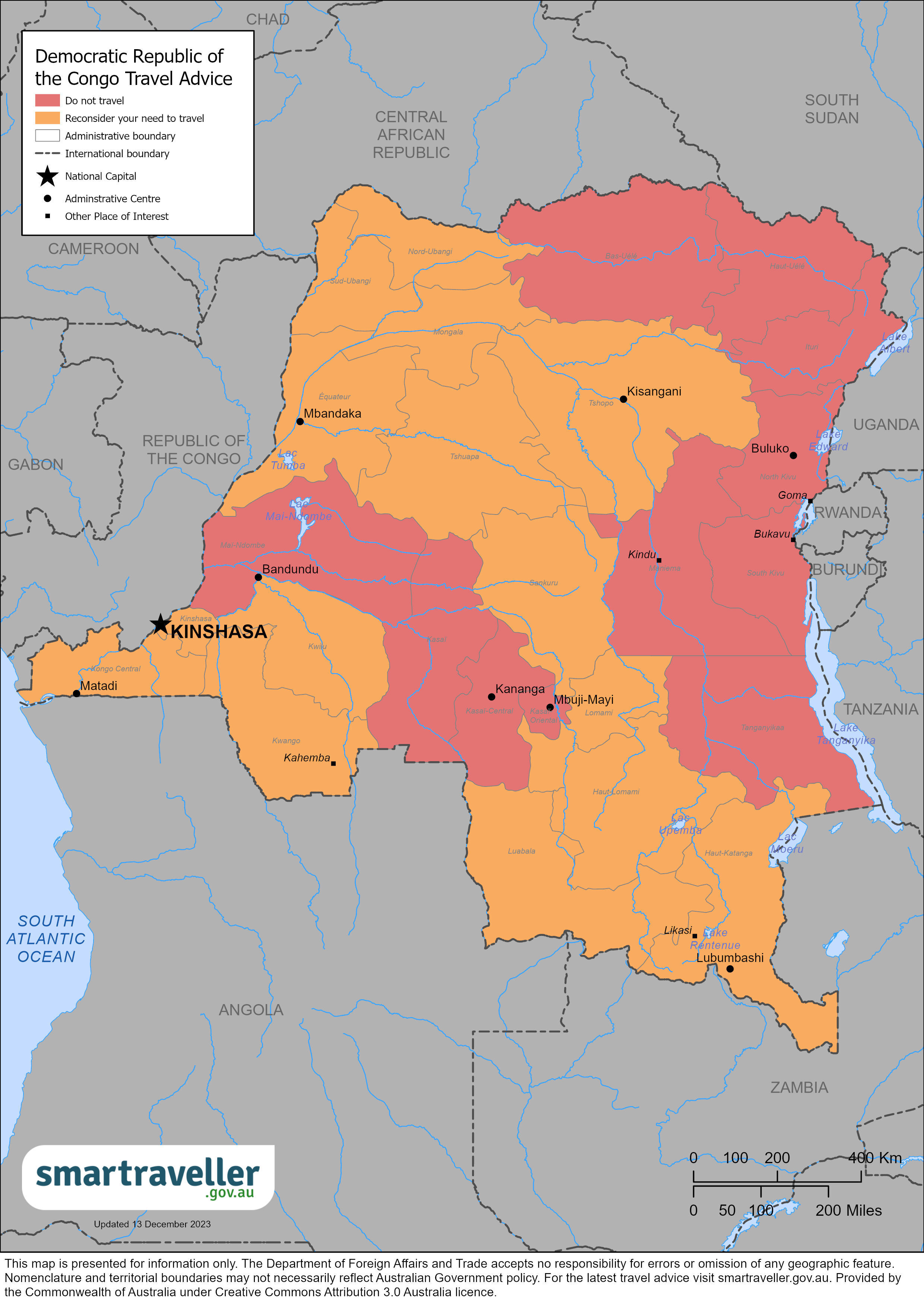Ebola virus disease (EVD)
Several outbreaks of Ebola Virus Disease (EVD) have occurred in DRC. There is an ongoing risk of EVD transmission in the DRC.
EVD is often fatal with a mortality rate of around 50 per cent.
Symptoms of EVD can include:
- high fever
- muscle pain and weakness
- headache
- sore throat
- vomiting and diarrhoea
- internal and external bleeding
Approved vaccines are currently only administered during a confirmed outbreak to those considered at highest risk of contracting the virus. They are not available to the general public as a preventative measure at this point in time. There’s no proven safe and effective treatment but prompt and high-quality care can be life-saving.
EVD spreads through direct contact with body fluids, even after an infected person has died. EVD can also be transmitted through direct contact with bodily fluids of those who have survived and recovered from infection.
Maintain strict hygiene standards. Avoid direct contact with EVD patients.
See a doctor if you feel unwell and separate yourself from others if you develop any EVD symptoms.
Call ahead and tell the doctor about your recent travel and symptoms. Advance notice will help the doctor treat you and protect others.
See the Australian Government Department of Health and Aged Care for more information on how to protect yourself against catching EVD, and what to do if you’re in an area where EVD is known to happen.
More information:
Polio
Outbreaks of polio have occurred.
Stay up-to-date with polio vaccinations and booster doses. Speak to your doctor if you’re unsure if you’re vaccinated for polio.
If you’re staying longer than 4 weeks, you’ll need to show proof on exit that you’ve had the polio vaccine or a booster within the past 12 months. If you don’t, you may need to be vaccinated before leaving the DRC.
More information:
Insect-borne diseases
Yellow fever is widespread in the DRC.
Malaria occurs widely throughout the year.
Other insect-borne diseases can also occur, including:
To protect yourself from disease:
- check your accommodation is insect-proof
- use insect repellent
- wear long, loose, light-coloured clothing
Get vaccinated against yellow fever before you travel.
Consider taking medicine to prevent malaria.
Seek medical advice if you have a fever, muscle pain, rash or severe headache.
More information:
HIV/AIDS
HIV/AIDS is widespread. Take steps to reduce your risk of exposure to the virus.
Other health risks
Monkeypox is transmitted to humans from animals, usually monkeys, rodents, and squirrels.
In areas where monkeypox occurs, avoid:
- contact with rodents and primates
- contact with people infected with monkeypox
- items that may have come in contact with an infected person.
Waterborne, foodborne and other infectious diseases are widespread. These include:
Serious outbreaks sometimes occur.
To protect yourself from illness:
- drink boiled water or bottled water with sealed lids
- avoid ice cubes
- avoid raw and undercooked food, such as salads
- avoid swimming in fresh water
- avoid contact with dogs, monkeys, rodents and other animals
If you’re bitten or scratched by an animal, get medical help straight away.
Get medical advice if you have a fever or diarrhoea.

